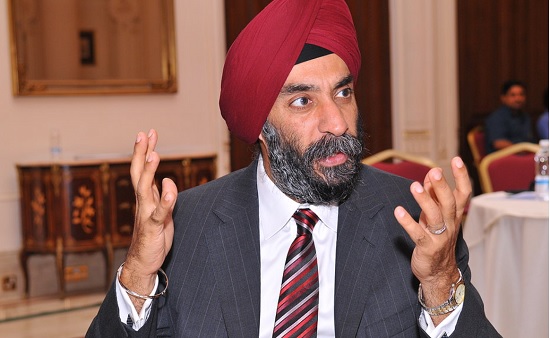Free your IP, and make money: Mohan Sawhney
By Goh Thean Eu October 16, 2014
- Concept of IP as proprietary source of revenue being challenged
- Even tertiary education can be free, monetised with grad placements

One of these models is Open Source, he said in a recent talk in Kuala Lumpur titled ‘Mega trends driving innovation in a hyper-connected world,’ hosted by Akademi Sains Malaysia, Friendly Rabbit Media and Mark Plus.
Sawhney said that companies today are more open to “donating” their IP to the community in order to spur innovation.
“If you look at a company like IBM, it is a big supporter of Open Source [software]. How does that work? You don’t make money from selling the software, but from services – the consulting that you wrap around the software,” he said.
Other companies that donate their IP to the community include Tesla and Google, said Sawhney, the director of the Centre for Research and Technology at the Kellogg School of Management in Chicago and a Fellow of the World Economic Forum.
“The idea that IP can be given away to stimulate further innovation in adjacent businesses is a very interesting concept.
“Take us (those who are in the education business) for example. In our business today, we charge people US$50,000 a year and we give them career placement for free.
“I am suggesting – and this can be controversial – that we should be giving them education for free, and then charge companies to place our students. I suggest we reverse the model,” he argued.
Sawhney revealed that he is currently in the process of creating a ‘freeware’ edition of one of his courses, product management.
“Basically, this means that I will teach it online to the world for free, and then I get to pick good people and give them product management jobs. I think I can make more money from these placements.
“Knowledge grows when you share it,” he added.
Sawhney said there are other ways of making money. “The indirect mechanism of value capture is becoming a very interesting notion now. After all, that’s how Google makes money by giving away Android.”
Smaller players and the IP game
While large enterprises and multinational corporations can ‘afford’ to give away their IP and use alternative methods to monetise their research efforts, small and medium enterprises (SMEs) may not have the luxury.
Nevertheless, Sawhney believes that SMEs can still play the free IP game to their advantage.
 “One way is to leverage off the IP that is contributed to the Open Source community and to build on top of it,” he said.
“One way is to leverage off the IP that is contributed to the Open Source community and to build on top of it,” he said.
He cited mobile app development businesses as an example. “If you look at what the app developers are doing, they are writing applications for the Android platform, and are then able to monetise their apps even though the Android platform is Open Source.
“You may think about the freemium model for your app. This means giving away something [the basic or ‘lite’ edition] for free, then attracting people to upgrade to [a more advanced version] to monetise it.
“There are also other ways to monetise – advertising, micro transactions, virtual books, and more.
“As an SME, you need to think about other ways to monetise or to capture value than simply selling your product for a licence fee,” he added.
Coming next: Malaysia wants to be a big data hub? Be a talent hub first!
Related Stories:
IP: Bazaar model vs copyright registration
Is intellectual property still relevant in the digital age?
Why patents are bad: Privatisation of knowledge
For more technology news and the latest updates, follow us on Twitter, LinkedIn or Like us on Facebook.


